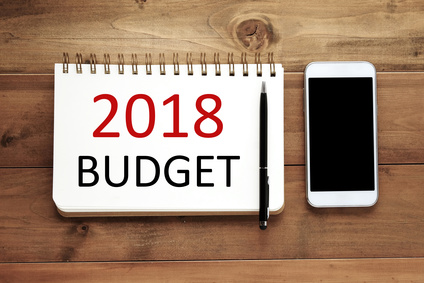
My House Budget,How do I Make Sure I Don’t Run Out of Money before the End of the Month?
It is your payday and it feels so great when you get money isn’t? You can see money in your account to again buy things you need or dine out in a restaurant etc. if you are someone who loves going out and spending money after every payday then you may fall in short of money even for the essentials at the end of the month.
If you fall short of money because you do not have any savings then even your bills will be due. Now, here is how you can get rid of falling in short of money at the end of the month with simple tips.
Keep a check on your expenses
It is essential to manage your money properly and keep track of where the money is going. Just take a notepad and a pen to write down your expenses and remember all of them which also includes the hidden expenses that occur throughout the year. They can be travel expenses, gift expenses on holidays, subscriptions, and other medical expenses.
You can divide the list of expenses over twelve months which will help you find out the actual cost of your living standard. Now, you can categorize these expenses to know which ones are essential and which are not. The list will help you know the two categories that are essentials and nonessentials. This will also help you reduce your expenses on nonessentials or completely eliminate them like salon trips, coffee shop visits that you may be indulged infrequently.
Remove the unnecessary expenses
It may be the most difficult thing to do while planning a budget, but it works, and is necessary to stop spending money on unnecessary things. Once you check your inventory and list out the unnecessary expenses try to eliminate them as they cost a lot in the long run.
If you are not very keen on eliminating them completely then look for economical options like coupons or discounts, which can be used while dining out or for any entertainment activities.
Keep a track of your money
After sorting out the expenses and removing the unnecessary items, you can keep a track of the money for which you can check the bank statements, receipts, etc to check where the money is being spent the most. This will help you set a budget and follow the same. You can also use online tools that help you monitor your budget.
Some people follow the traditional pattern of keeping track of budget expenses that is by writing on a paper. This works too as long as you stick to your budget goals.
Liability is important
Taking responsibility is important. You can also let your friends remind you of your goals and keep a check on how much you spend. You can also go with a cash envelop old method. You can keep an envelope for each category that belongs to spending. You can keep some cash as per your budge in the envelope. When you end up spending the money placed in the envelope it means you have to stop spending now.
Make sure you reduce the spending every month which will automatically save money and you won’t run out of money before the end of the month.
Money for Emergency
When we discuss money to be saved for emergency it means you will have some funds for emergencies. It is the best practice and an easy way to stick to the budget and do not fall short of money before the month gets over. Make sure you save some money for emergencies but do not try to spend the money from this fun just because you end up spending more on other things like buying shoes or groceries etc. The money saved for emergencies means for emergency situations only like an unexpected visit to the hospital, car repair, etc. The emergency funds help you cover the unexpected costs without affecting your budget. In case you use your emergency funds to handle emergencies, then make sure you fill in the money taken back to the emergency fund so that you do not face problems in the future.
Do not worry or blame your income which may be less as a properly planned budget can help you deal with low income as well. A budget can help you find out if you are earning enough to pay for your basic necessities like food, bills, etc. In case you feel the income is really less do not waste time thinking about it, just upgrade or shift to a better job. Try to learn new things that will help you earn enough money to bear all your expenses. Your proactive approach can help you fulfill your goals.
Some people earn more still they are short of money before the month ends, this is because they are spending more money on unnecessary things like eating out often, buying things that you do not need or planning frequent trips that cost a lot. All these things lead to problems at the end of the month. Make sure you pay your bills on time so that you don’t have to pay extra for late payment.
Do not keep any bills pending. Once you pay your bills you will be able to evaluate how you can spend money on necessary things and save money in the end. If you think you want to buy something, start saving money to buy the product so that you don’t have to disturb your monthly paycheck to buy the product. Determine whether you need a particular thing before you place the order. It is always necessary to determine whether it is a want or a need before you make a purchase.
Make sure that you remain true to yourself and money saved is money earned so do not waste your hard-earned money to buy unnecessary things. Any help for financial problems contact gtacredit.com or call 416 650 1100





